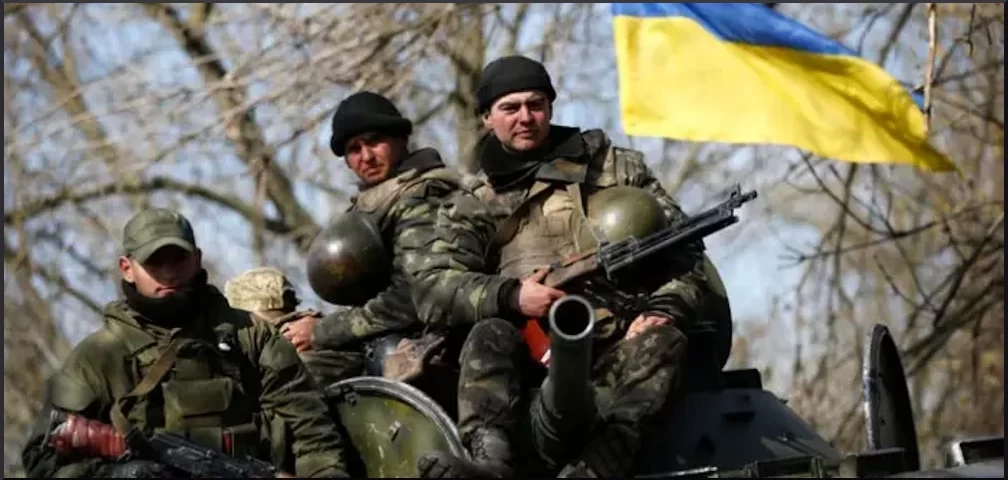by Felix Abt, published on CovertAction Magazine, March 15, 2023
Claims made by transatlantic politicians and their media partners turn reality upside down—and would baffle even George Orwell.
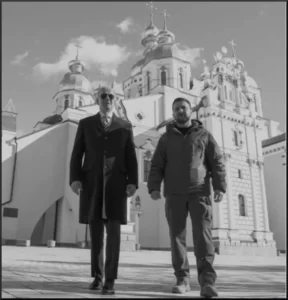
That the war could have any connection to NATO expansion, which led to the deployment of nuclear-capable missiles in Poland and Romania with a flight time of less than 10 minutes to Moscow, is not even remotely addressed.
Neither is the Obama/Biden administrations’ push to annex Ukraine into NATO, with a 2,000-kilometer (1,243 miles) shared border with Russia and even more missile bases in the future. If Cuba deployed a single Russian missile, that would be grounds for Washington to go to war against the island; Russia, on the other hand, is expected to be surrounded by countless NATO missiles on its borders and in its vicinity without fighting back.
Russia allowed Germany to reunite peacefully after the West had promised diplomatically not to move NATO an inch to the east. Moreover, in 1999, Western countries had agreed to the principle in the Charter for European Security that “the obligation of each State not to strengthen its security at the expense of the security of other States.”
Russian Limits Ridiculed
The oh-so-trustworthy values West, however, did not give a damn about keeping promises and agreements with Russia. Moscow swallowed the big toad when NATO ballooned into a serious threat on Russia’s borders, not only in Poland and Romania, but for years held unabated to its demand that Georgia and Ukraine not be allowed to become NATO members under any circumstances. Western politicians and media have never taken this Russian “red line” seriously and have even ridiculed it.
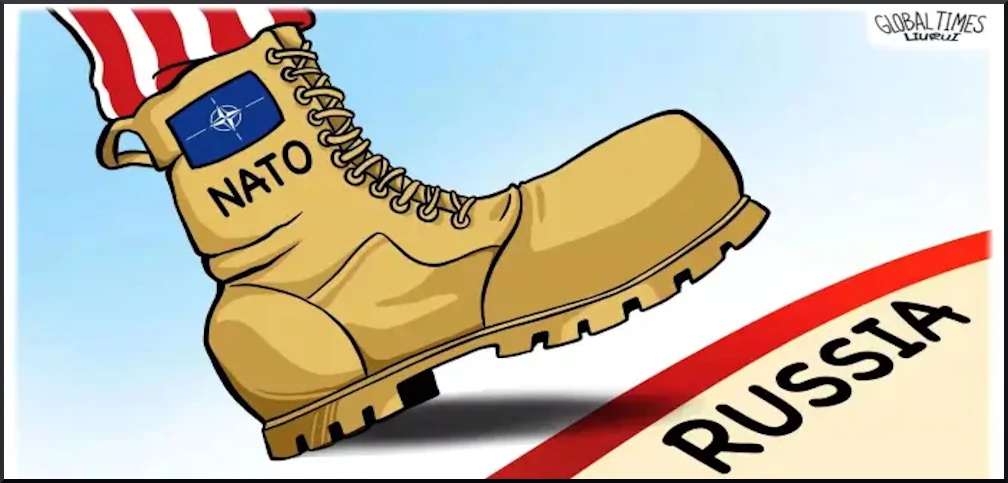
It is therefore probably no coincidence that mainstream media consumers never learned that the same Joe Biden, when he was the ranking member of the U.S. Senate Foreign Relations Committee, assessed NATO expansion as a dangerous Western provocation of Russia and warned that it would provoke “a vigorous and hostile response from Russia.”
Instead of preventing this predictable response by providing a security guarantee to Russia, which would have been inexpensive and painless for all concerned, he actively helped provoke it! Well, to honest Joe Biden’s credit, he has outed himself as a corrupt politician who has to serve the donors: “I don’t think you should assume that I’m not corrupt. It takes a lot of money to get into office. And the people with that money always want something.”
Were you able to read anything about all this in your newspaper or learn about it from your TV channels? Exactly. So you can assume that a well-lubricated senator who wants to become president at least does not stand in the way of the expansionist urge of the all-powerful military-industrial complex and therefore adjusts his opinion: So it was Russia that provoked! Politicians and media loyal to Washington immediately added the reason for the NATO expansion: There is an imperialist tsar in the Kremlin who has turned into a dangerous new Hitler, and that is why a highly armed NATO is needed on as many of Russia’s borders as possible. Truly, the devil in the Kremlin provoked the NATO expansion!
It took 32 years from the dissolution of the Warsaw Pact to the almost complete NATOization of Europe—compare the state of affairs in 1990 with that of 2022, the year of the “unprovoked war of aggression.”
The illustration above shows that in 1990—year 1 after the fall of the Berlin Wall—the Russian-dominated Soviet Union included Ukraine, the Baltic States and several other now independent countries. The Warsaw Pact, an alliance also dominated by Russia, included six states, all of which are also independent today.
And in the chart below, you can see that in 2022—32 years since Germany reunified—all the former Warsaw Pact countries have joined NATO in the meantime. Three countries that were formerly part of the Soviet Union—Estonia, Latvia and Lithuania—have also become NATO members.
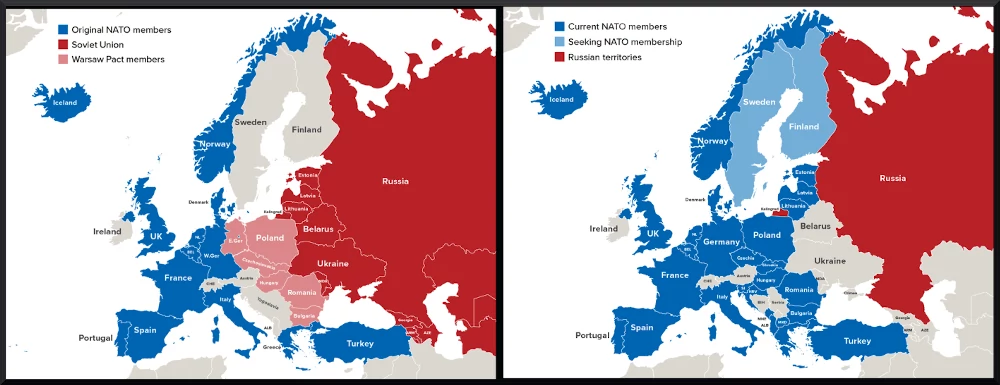
Until now, the official and constantly repeated mantra of Washington, its European vassals and media partners has been that Russia was responsible for the crime of a completely “unprovoked” war of aggression, which it started in February 2022. Now NATO Secretary General Jens Stoltenberg has corrected the date of the start of the war—confirming what consumers of alternative media have known for years:
“…the war didn’t start in February last year. It started in 2014.”
-NATO Secretary General Jens Stoltenberg on February 14, 2023
The war began eight years earlier, in 2014, when the democratically elected Yanukovych government in Kyiv was forcibly deposed in a U.S.-backed coup and replaced by an anti-Russian government that subsequently cracked down on Russian minorities.
By the way, it is not entirely coincidental that eight years after the coup in Kyiv, the year of Russia’s “unprovoked” war of aggression, the smoking gun for U.S. involvement in the overthrow of the government in Kyiv was removed from YouTube.
NATO began training and arming Ukrainian forces after the coup. The new, Banderist and Russophobic regime in Kyiv took advantage of the military buildup starting in 2014 and began bombing Russian-speaking civilians in the Donbas that same year, causing death and devastation. You could not learn about all this from your newspapers or TV channels either.
Reporting on Ukrainian Terrorism in the Donbas is Censored
Alina Lipp moved to Donetsk in 2021, a year before Russia invaded Ukraine to live there for a while and find out for herself what was actually happening in the Donbas. At that time, the freelance journalist from Germany was still comparatively unknown.

Valued Minorities Versus Criminally Neglected Minorities
When it comes to the rights of a minority like LGBTQ, the megaphones of the “values West” loudly demand support. But when it comes to minorities in Ukraine, they are silent. Hungarian Foreign Minister Peter Szijjarto lamented on his Facebook page that minority rights, including language rights, of the more than 150,000 ethnic Hungarian Ukrainians have been severely curtailed by the Kyiv regime.
For example, Hungarian-speaking children were denied the right to be taught in their language. Unlike the case of the Uyghurs in China’s Xinjiang province, where a wave of international protests erupted against what was alleged to be a similar cultural genocide (although Uyghur children are taught in both Uyghur and Mandarin), there has, of course, been no outcry here.
In addition, at least 19 million Russian-language books were taken out of circulation, denying the Russian-speaking minority access to literature in their native language. NBC correspondent Richard Engel witnessed the burning of Russian-language books at a checkpoint in Kyiv, including, for example, the war-important book Fire Resistance of Burning Structures.
The political party, which had come in first behind Zelensky in the presidential election, was banned by the latter along with other opposition parties representing mainly Russian-speaking Ukrainians. Critical media, especially those close to minorities, have also been banned or put on a state leash.
Several Russian-speaking Ukrainians, including a democratically elected former president, have had their Ukrainian citizenship revoked, and others have had their property confiscated. The list is not exhaustive, as the Kyiv regime is in the process of eliminating as much “Russian influence” as possible. It seems to want to fulfill the wish of its national hero, Nazi Bandera, who is buried in Germany, to create a “pure” Ukraine.
Was Russia Provoked Into Invading Ukraine?
NATO’s claim that “Russia wants to conquer Europe” to justify its omnipresence in Europe is nonsensical. Russia precisely does not want to trigger Article 5 (mutual assistance clause in case of attack) of the NATO treaty: First, it invaded Ukraine before Ukraine could officially join NATO to militarily resolve the Donbas issue—where the majority of Russian-speaking Ukrainians live, threatened by the Russophobic Kyiv regime.
The West and Kyiv had not been ready for a diplomatic solution before; while Russia was accused by Western politicians and media of not wanting to comply with the Minsk agreements to resolve the conflict in the Donbas, the fact is that, according to main protagonists Angela Merkel, François Hollande, Petro Poroshenko and Volodymyr Zelensky, these agreements were not meant to be complied with at all, but only had the purpose of buying time so that the Ukrainian Army could be rearmed by NATO and prepared for war with Russia. And secondly, precisely because of NATO Article 5, one can assume that Russia does not want to and will not intentionally invade a NATO country.
To answer the question of whether Russia felt provoked to invade, one must consider the situation before the actual invasion, which was as follows: By mid-February 2022, the civil war waged by Kyiv in an inhumane manner—with aircraft, artillery and tanks—against the Russian-speaking civilian population in eastern Ukraine had resulted in more than 13,000 deaths, about a million people forced to flee, and countless destroyed towns and villages.
No concession could be expected from a Ukraine equipped with state-of-the-art U.S. weapons in the Donbas autonomy efforts; instead, there was Zelensky’s threat toward Russia to acquire nuclear weapons. The West’s refusal to negotiate legitimate security guarantees for Russia and the Russian-speaking minority in Ukraine also played a role in Russia’s calculations.
And despite the genocide caused by years of bombardment of Russian-speaking civilians in Donetsk and Luhansk by the Ukrainian Army, irregular volunteer units, and the “fascists who overran the country” (Jerusalem Post), the Western-dominated UN Security Council has not intervened—even though it was obligated to do so under the following paragraph 6 of the International Criminal Code a.k.a “Völkerstrafgesetzbuch”:
“Whoever, with intent to destroy, in whole or in part, a national, racial, religious, or ethnic group as such, kills a member of the group, inflicts serious bodily or mental harm on a member of the group, particularly of the kind specified in section 226 of the Criminal Code, places the group in conditions of life likely to bring about its physical destruction in whole or in part … shall be punished by life imprisonment.”
In his book “Ausnahme Zustand: Geopolitische Einsichten und Analysen unter Berücksichtigung des Ukraine-Konflikts” (State of Emergency: Geopolitical Insights and Analyses Taking the Ukraine Conflict into Account), German lawyer Wolfgang Bittner explains that Russia can invoke its Responsibility to Protect (“R2P”) vis-à-vis the Russian-speaking population in eastern Ukraine—a generally recognized requirement under international law to prevent serious human rights violations. R2P, however, is a problematic doctrine that was originally introduced into international law by the United States and NATO—primarily to justify the war of aggression against Yugoslavia.
Whether Provoked or Unprovoked—One War is Not Enough!
However, NATO expansion in Eastern and Northern Europe is not the end of the story. Now this war-time alliance is working hard to expand in Asia as well, because a rising China is perceived as a threat to U.S. world domination.
So China is not only being subjected to a fierce Washington-led economic and propaganda war to contain the new “yellow peril.” Western armies, which together already spend many times more on “defense” than China, are now to be upgraded even more massively. And if the money is not enough, one can always cut the budgets for education, research, health, social services, and infrastructure and incur more debt.
It is not surprising that the media do not call attention to the fact that China is clearly acting defensively in response to these aggressions, while the United States is acting aggressively. The following chart shows how tightly the United States has encircled China, not the other way around:
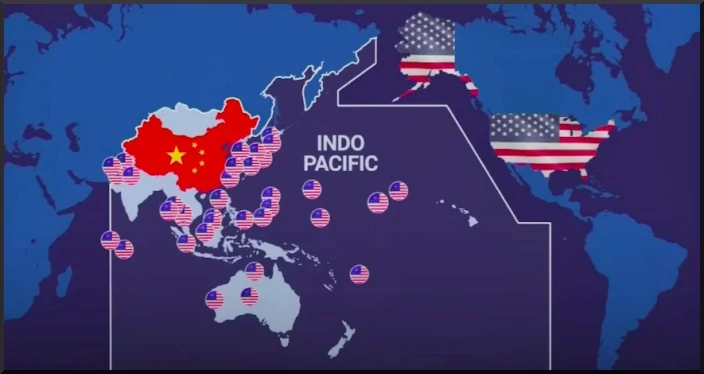
A network of military bases that the United States has built up around China and is still expanding would need to be replicated by China in Central and South America. The American empire, which has more than 800 military installations worldwide, indeed seems to be expanding militarily without end: In the Philippines, for example, four new American military bases are currently being built, targeting China, as shown in the chart below:
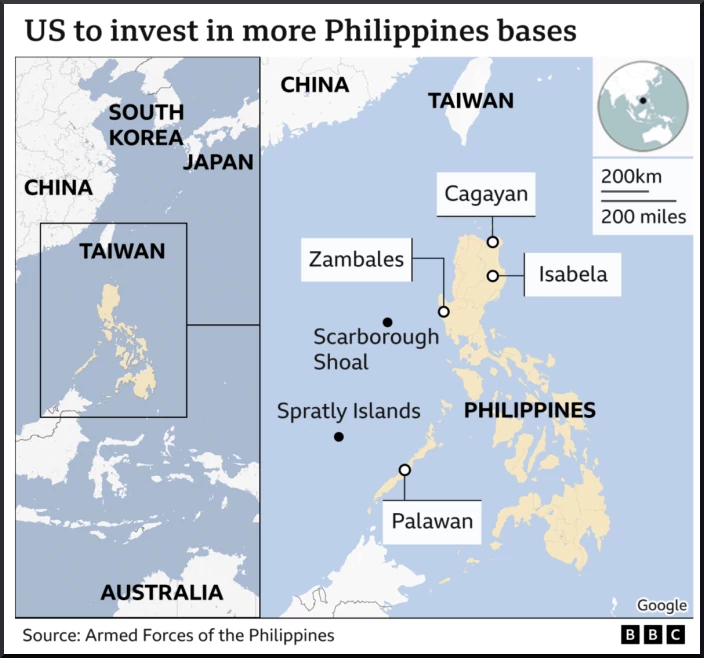
Allow me a brief digression here: The actual name of China is Zhongguo (中国), which means Middle Kingdom. It dates back to a time when its citizens prided themselves on being the most civilized nation in their own universe, where the territory they controlled was at the center of a world surrounded by less developed foreign cultures and alien civilizations.
The fact that China is now preparing to re-emerge as the leading economic power, and this after a century of humiliation by today’s G7 countries in the 19th and 20th centuries and decades of internal turmoil, is frightening in the West, especially since it comes from a foreign culture that is capable of generating fear. After all, what one does not know, does not understand and cannot assess is often perceived as threatening.
The goal of the Chinese Communist Party is not to turn the world into a “communist paradise,” not even its own country, but to promote the renewal of the country. Chinese politicians speak of the “Chinese dream,” by which they mean national renewal and renaissance (i.e., not communism). The party, which can be described as patriotic or perhaps nationalist rather than communist, and which merely derives its claim to sole representation and leadership for the country’s modernization from Marxism, also advocates the millennia-old concept of tianxia (“all under one heaven”). This is understood to mean an inclusive world with harmony for all. To put it casually, “We leave you in peace, and you leave us in peace.” That is why the principle of non-interference in the internal affairs of other countries is so important to them.
So the Chinese do not want to conquer the world. If they had wanted to, they could have done it with ease in the 13th, 14th or 15th centuries. They had the chance when they were the undisputed and only economic superpower. At that time, when China was far superior to other countries.
Chinese Admiral Zheng He led the world’s largest and most sophisticated fleet (with 317 ships and 27,800 sailors) on several excursions from China to Kenya, Somalia, Iran and Saudi Arabia. Instead of pursuing a gunboat policy, the Chinese wanted to trade. Unlike the Europeans, they did not take the opportunity to conquer and subjugate other countries because they simply had no interest in doing so.
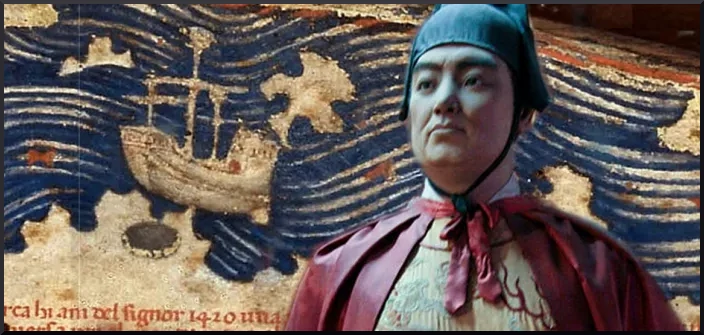
The Chinese are not trying to convert us to their model. Unlike the Americans, they lack a sense of mission and proselytizing spirit, and besides, the Chinese system would be unsuitable for export because it is so specific and inextricably interwoven with the country’s millennia-old tradition and culture.
It was the U.S. and the rest of the self-proclaimed “value-oriented West” that tried for a long time to get the Chinese to adopt their ruthless version of capitalism and move them away from their social model of state-controlled capitalism (pioneering planning goals and research investment, breaking up and banning cartels and monopolies and ensuring fair competition, requiring the rich to pay their fair share of taxes to reduce social inequalities, etc.).
But why would the Chinese have allowed themselves to be talked out of a model of success that enabled China to achieve in 30 years a level of development (including the liberation of 800 million of its citizens from poverty) that took the West 200 years? The West also ignores the fact that the thoroughly pragmatic Chinese government uses the market as a competitive tool to drive innovation and modernization, and ultimately to achieve the Chinese dream.
Unlike politicians, scientists and journalists of the “value West,” they are not ideologues, but pragmatists with a strong sense of reality. The joy of experimentation and the many breathtaking changes that are taking place every day throughout the country are proof of this.
Once again, the Chinese are not missionaries, they do not feel called to be world policemen, and they have no desire for expansion. In this respect, they are fundamentally different from the Americans. When American politicians, academics, media and their European parrots waffle about the imperialist danger and the threat from China, it is merely an expression of their ignorance and projection. It is no wonder that imperialism and colonialism are concepts coined and lived by the West, not by Chinese.
Taiwan—America’s New Conflict Case à la Ukraine?
After Ukraine, the next pawn is Taiwan; at least that seems to be the goal. Can China prevent a new century of humiliation—including a war that will be more brutal than the Opium Wars—by the West?

The election winner, the opposition Kuomintang, advocates rapprochement with China, which must displease the war hawks in Washington.
The Taiwanese president then resigned from her post as leader of the ruling party [though she remained as Taiwanese President]. Just a few months earlier, she had received Nancy Pelosi and many other anti-China and warmongering politicians from Western countries with great pomp.
Recently, however, she meekly announced that war with China was “not an option”—a bitter disappointment not only for the Western war industry but also for its political and media groupies who are in favor and determined to “take a stand against China.”
Well, at least they are left with the hope that the CIA will discreetly solve this vexing political problem on the unreliable island for the belligerent West.
However, it should do it a bit more skillfully this time than it did in Hong Kong (see Nury Vittachi’s book “The Other Side of the Story: A Secret War in Hong Kong”).
*Featured Image: Ukrainian Army on the offensive in eastern Ukraine. [Source: businessinsider.com]
